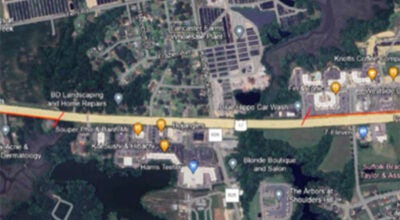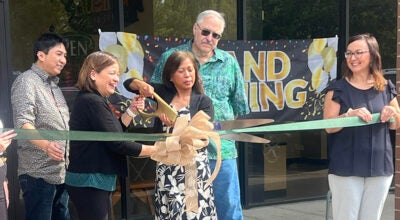City lists legislative concerns
Published 10:53 pm Thursday, October 17, 2013
The City Council on Wednesday approved its legislative agenda ahead of a dinner with legislators set for Nov. 7.
Items set for discussion with state lawmakers include a feasibility study on a joint-use library concept with Paul D. Camp Community College, enterprise zone designations, the Commonwealth Railway Mainline Safety Relocation, an amendment to an agreement restricting development on a North Suffolk site, transportation projects and more.
Transportation priorities include the widening of Holland Road, building a bridge parallel to the Godwin Bridge over the Nansemond River, raising the Kimberly Bridge and a portion of North Main Street to alleviate regular flooding there, improving rail facilities to increase rail capacity through the city, replacing the Kings Highway Bridge and continuing maintenance dredging of Bennett’s Creek.
In transportation and other areas, the city plans to mount opposition to unfunded and underfunded mandates, Intergovernmental Relations and Special Projects Manager Sherry Hunt said during Wednesday’s presentation.
The city also hopes to gain approval for a feasibility study that would allow the city and Paul D. Camp Community College to pool resources for a new library in the core downtown that would also incorporate college classrooms.
“We’re modeling our concept behind a very successful venture in one of the neighboring localities,” Hunt said, referring to a joint facility between the city of Virginia Beach and Tidewater Community College.
“We just want to explore the options for this particular facility.”
Also on the agenda is a move to change the criteria for having an enterprise zone designated by the state. Currently, the enterprise zones — special areas where cities can offer incentives for employers to set up shop — are given based on economic figures for the entire city.
Suffolk officials, however, want to change that designation to be based on census tracts instead, allowing distressed areas of the city to get the designation. An effort to do so met with opposition last year from localities that currently have enterprise zones and don’t want to lose them, but the city hopes to try again this year.
The city used to have an enterprise zone but lost it in 2009, Hunt said.
The city also hopes to continue what Hunt called “steady progress” on the Commonwealth Railway Mainline Safety Relocation effort. Last year’s legislative session saw a study proposed to investigate improvements to the railroad.
On the 55-acre site in North Suffolk owned by the Economic Development Authority, the city hopes to get legislators to agree that language in an agreement that restricts development on the site to defense technology uses in support of the U.S. Joint Forces Command is too restrictive — in particular, since that command no longer exists.
Economic Development Director Kevin Hughes said the city wants to look not only at defense technology uses, but also at hospitality, medical and other uses.
“We’re just looking for flexibility as we develop that site in Northern Suffolk,” he said.
The city also hopes to be added to a list of localities in state code that are permitted to place liens on property for unpaid water and sewer costs.
Other items the city hopes to monitor include roadway maintenance funding, the move to repeal the Business, Professional and Occupational License tax and efforts to end the moratorium on uranium mining.
The city is opposed to uranium mining and opposed to the elimination of the BPOL tax unless another revenue source replaces it.






